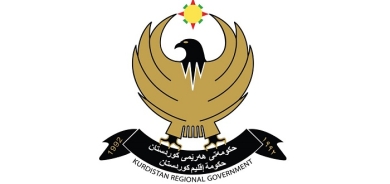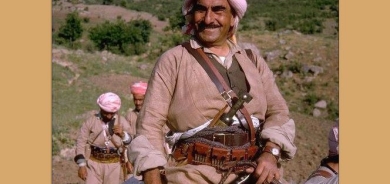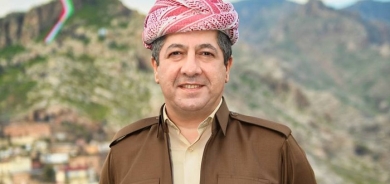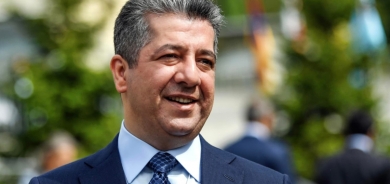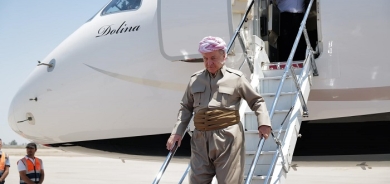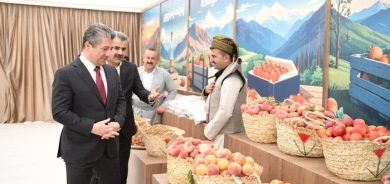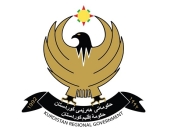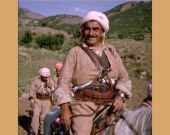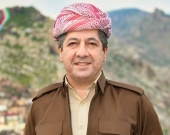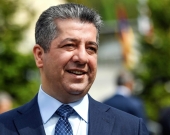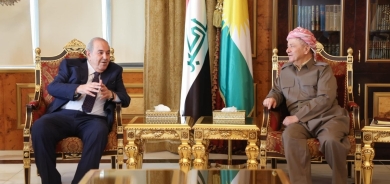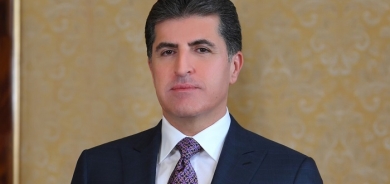Government and reform

In the developing countries, or the countries which are in the transitional phase and are stepping towards democracy building process, the democratic culture is still too young or in the best case it is still in the development process, this is so much similar for all the developing countries because democratic culture is not to have expertise or to know the definition of democracy, in other words the question of "What is democracy?" is repeatedly asked within every country and the developed level of democratic culture responds to it, not the research centers or the universities of that place. So, that is why if some people think that democracy is just to be the repeat of the western experience in which these countries have been going on for decades, but democracy on the real ground tells us a different thing that is "It is quiet true that we can benefit from the successful experiences but it has to be built according to the intellectual, political and social norm abilities.

Hence democracy generally covers all the aspects of society in terms of political, economical, norms and traditions of the society, so no any other experience of a country can completely fit another. This reminds us some statements of Lee Kuan Yew, former prime minister of Singapore, from his lecture in 2008 in Saudi Arabia and said "If I was from Saudi Arabia, how I would have thought of rebuilding Saudi Arabia?", Lee Kuan Yew is the author of the most successful experience of rebuilding in Singapore, he didn't mention that Saudi Arabia should imitate Singapore so as to succeed, but he posed the question of "How Saudi Arabians should think of rebuilding their own country?", in his responds to this question: If I was from Saudi Arabia, I would have thought of what Saudi Arabia has and how can I manage these potentials so as to rebuild the state. And he mentions "Saudi has two essential elements so as to use them "First is camel and second one is oil". Which one should I rely one? he asks himself, and responds as; I will rely on the oil, but not exporting crude and selling it, for building oil industry in that country. If we refer to Lee Kuan Yew's book, Singapore from third world country to first, he never mentioned oil as a resource to rebuilding, but how to use the potential of this country as a pathway and a harbor, this is also true for Taiwan, Japan, Korea, Costa Rica, and Botswana, including Chili also, because their rebuilding type is different from each other. When the Koreans and Japanese are coming to our country, they don't recommend us to repeat their experience, but they are telling us; look how we could read our country potentials and rebuilt our country from a destructed postwar country.

Regarding this question and the importance of democracy building, correcting the mistakes and shortages, initiating reform process, importance of developing and rebuilding process as steps to democracy development process, we contacted the professor Mushtaq Khan, a professor and lecturer of economy at London University, whose expert in development of the developing countries, and exclusively to GULAN magazine he responded: "The development and rebuilding processes are extremely important, you cannot have transition without development in my understanding, because the sustainability of institutions and the sustainability of political stability requires you to have a broad based economic development, and requires you to have a broad based creation of employment opportunities, jobs and growth. The transition will not be sustainable if you don't have these processes of economic development as part of the process of the transition itself. Regarding the role of political parties, you're asking the most important question because the heart of economic development and the heart of democracy and the rule of law is the organization of political parties, this is if you ask me what is the most important task, I would say this is the most important task: is to construct not just the political parties but a broad popular pressure on the political parties to behave in reasonable ways and this is not easy to achieve because Iraq is not the only country which has the problem here, most developing countries have political parties which are not very realistic and do not want to make compromises, they want to capture all the resources for themselves and this results in social tension and crises and so on. So, how do you construct political movements and political organizations which are willing to make compromises for the national development which are able to govern reasonably, is I think much more important than rule of law or of democracy, this is the fundamental job. And here I think organizations which are in the media and academia and think tanks, public places and civil society, we all have to speak together to explain to the political parties that this is their responsibility that if they try to destroy their opposition or to try to destroy people who disagree with them, the effect will be disasters for them and for the country and I think that this is so obvious but people don't really understand this because one of the problems of development is that people are very hungry and people who have political power are very hungry and want to capture a lot of resources for themselves and in trying to capture all the resources for themselves they try to destroy other interests and other groups in site, this is the fundamental problem, and you can't solve this with a rule of law because rule of law itself is difficult to be enforced, so you have to solve it with understanding with popular pressure, with discussions, with media saying these, with civil society saying it and with everybody have to keep on saying that no political party should try exterminate or destroy its enemies, because this is a road to disaster, everybody has to learn to live and let live to share and to make compromises in the national interest, this is the most fundamental job".
The Professor Khan whose also from a third world country and expresses much in detail on the problems of developing countries and political parties, so we asked him if; how is it possible to manage freedoms with law? How to enforce rule of law? How to combat corruption? He responded to our so much broad and multi-aspect question as: "This is a very big question. Different people take different positions on it, I think that as I understand it my reading of history is that these two things develop side by side in parallel. And both of them are dependent on the achievement on broad based economic development, I think to say that the rule of law is important no one can disagree with it, the problem is ''how do you enforce the rule of law in a context where you have very limited resources where there are powerful informal organizations in your society, and there are powerful groups who are operating outside the rule of law'', so rule of law is not just a statement, rule of law actually describes substantial level of economic development because you must have institutions which can enforce the rules and you must have a broad understanding and agreement in society that these are the rules which everybody and most people agree to have. So, the rule of law takes a long time to evolve, you must have a social consensus and it is only possible when most of the people are happy and most people are likely to be happy if there is economic prosperity, to achieve the rule of law in the absence of that is very difficult. So, to say that rule of law comes first, then comes democracy, and the development is I think not feasible, it might be in theory ok, but in practice it is completely not feasible. So, in my view all of these things have to develop simultaneously, but the most important thing that needs to happen is economic development, because if you don't have economic development, you will have neither the resources to have rule of law nor the resources to run a democracy. And both rule of law and democracy require resources, if you don't have resources you cannot run a democracy or rule of law. And regarding corruption; Corruption is one of the problems which takes many years to address, because one of the main causes of corruption is that when you don't have enough resources in the budget to redistribute, then a lot of corruption is political corruption, people who are powerful are capturing resources, because the only way they can get resources is outside the budget, and when you capture something outside the budget is corruption. So developing countries have a lot of corruption because their politics does not go towards democratic process of the budget, and this takes a long time to resolve, now again if you want to get rid of corruption tomorrow, you will fail just like if you want to have good rule of law tomorrow you will fail. But in the same way you have to keep on making slow and gradual progress in getting rid of the most damaging types of corruption, the corruption that destroys the political fabric of the country, the corruption that results in the resources been taken out of the country and put in Swiss banks, the corruption that results in infrastructure not been built, you have target specific areas that corruption has very damaging effects, but to say that we will get rid of all corruption is not very useful, because you cannot succeed, so just like what we are saying about politics; anti-corruption is very important if you take it in a very specific targeted step by step get rid of corruption in the most damaging areas. Iraq needs to build infrastructure, Iraq needs to have political compromises between its political parties, those kinds of things should be the more transparent this it is the more consensuses this it is, the better it is. But that there will be no corruption in the Iraqi political parties, that there will be no secret deals within them, this is impossible. And we should not be trying to get rid of all of that. So I think the program of governance must be pragmatic, must be implemental and must be step by step and most fundamentally it must give up the idea that anyone ethnic group or regional group has the right to control and command the other groups it has to be based on a compromise that is the only way forward. Having young population is a challenge because the big challenge for the developing countries is to create jobs and job creation is not easy, you have to have some kind technology policy and industrial policy to acquire new technologies and create a lot of jobs. If you can't create jobs then you see most people think of young people as innovators as creating new inventions and so on, yes small minority of people will do that, but most young people will not be innovators, will not be inventors, they need jobs. So, developing countries need to create tens of millions of jobs and this requires a mass manufacturing strategy, industrial strategy, to create jobs for tens of thousands and thousands of people, and lack of that kind of industrial policy in that country is a big challenge, and if the challenge cannot be met, then you will have political instability, you will have aspiration crisis, you know the problems that you will have, and the answer is to create jobs".
The Professor Khan insisted on the success of development and rebuilding processes. And we also contacted Professor James Markusen regarding "How the rebuilding process can succeed?", exclusively to GULAN magazine he responded as "There are many things involved in this and many of them have to do with essentially government institutions and building a reliable predictable environment in which business can began to invest and train workers can grow. If you look at some successes and failures around the world of the last fifty years you see that the ones that provided really good governance in which businesses both domestic and foreign believed that they could safely invest and could have secure property write and contract enforcement are much better than the weak governments and weak institutions. So for example Singapore created a tremendously good environment for investment way back beginning in the 1960s and went from being a poor country to being a world leader. I think one thing the countries should do is study the successes and failures in the world and from a very practical point of view sometimes things get in trouble in developing countries because the debate is dominated by ideology and for political ideology and religious ideology and good government is a very practical decisions its very practical pragmatic set of things that need to be done. And if I was to talk to the most developing countries I would say you have to separate practicality and pragmatism from ideologies. Study from a practical point of view whose done well over the last 50 years development and who’s done badly and try to learn the practical lessons and follow those practical lessons instead of trying to deal with the problem from a political, religious ideological point of view. In some of the countries so again take the two I just mentioned Singapore and china they certainly didn’t were particularly democratic but what they did do is in the ruling party they had this very strong sense of meritocracy for promotions and job assignments, and well the Chinese communist party were very authoritarian there was a lot of democracy and meritocracy in side that party that allowed to make decisions quickly and affectively even though not particularly democratic. You can’t trust say that India which has very long tradition of democracy it suffer greatly from all the problems that you just mentioned about political fighting between different parties even sometimes within parties that is prevented a lot of things from getting down in these countries. People from India say that looking at the ability of china to make decisions actually make change India to make politicians to realize that if they don’t cooperate and don’t focus on common objectives they just fall further behind.
Translated by: Sheban Ferhad

